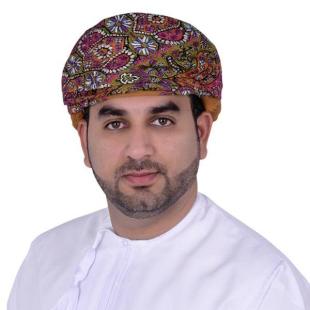5G regulation and law in Oman

Authors
- What is the state of 5G deployment in your country?
- What is being done to ensure that a wide range of operators and industrial companies, from small to large, have access to frequencies? Are such frequencies accessible to stadiums, airports and other special premises?
-
What public tenders have awarded spectrum licences?
- What were the criteria for awarding each of the tenders?
- What are the conditions of the spectrum licence?
- What is the price and how is it calculated?
- Have there been any issues with the implementation of the 5G projects? Have there been any decisions regarding non-compliance with 5G concession obligations?
- Is there a long-term spectrum plan or announcements for future tenders?
- If 5G specific rules are drafted, what do they say?
- Are 5G network sharing or spectrum sharing agreements in place? Is there any focused 5G network or spectrum sharing regulation?
- What are or will be the rules for granting competitors access to new 5G networks once they are deployed?
- What comments have been made regarding 5G cyber-security and possible use of Chinese technology, including regulation?
- Is there any project regarding 6G?
jurisdiction
- Albania
- Angola
- Australia
- Austria
- Belgium
- Bosnia and Herzegovina
- Brazil
- Bulgaria
- Canada
- Chile
- China
- Colombia
- Czech Republic
- France
- Germany
- Hong Kong
- Hungary
- India
- Italy
- Japan
- Kenya
- Luxembourg
- Macau SAR
- Malaysia
- Mauritius
- Mexico
- Monaco
- Montenegro
- Morocco
- Mozambique
- Netherlands
- New Zealand
- North Macedonia
- Norway
-
Oman
- Peru
- Poland
- Portugal
- Romania
- Serbia
- Singapore
- Slovakia
- Slovenia
- South Africa
- South Korea
- Spain
- Sweden
- Switzerland
- Turkiye
- USA
- Ukraine
- United Arab Emirates
- United Kingdom
1. What is the state of 5G deployment in your country?
Oman has made significant progress in deploying 5G networks, with both non-standalone (NSA) andSA architectures being implemented.
Omantel launched its 5G network in December 2019, utilizing the 3.4 – 3.6 GHz frequency band. 1 The Telecommunications Regulatory Authority (TRA) had set a target for operators to deploy 4,400 5G base stations over a five-year period starting in October 2019. By mid-2024, the number of 5G sites had increased by 19% compared to the previous year, with about a third of these sites in Muscat.
Vodafone Oman has been particularly active in advancing 5G SA capabilities. In January 2023, Vodafone Oman and Ericsson successfully tested 5G SA voice and data services, paving the way for commercial deployment. 2 By March 2023, Vodafone Oman's 5G network covered 70% of the population, with plans to increase coverage to 90% by the end of the year. 3
These developments indicate that Oman is actively expanding its 5G infrastructure, with a clear focus on rolling out 5G SA networks to enhance service offerings and support future technological advancements.
2. What is being done to ensure that a wide range of operators and industrial companies, from small to large, have access to frequencies? Are such frequencies accessible to stadiums, airports and other special premises?
The Telecommunications Regulatory Authority (TRA) oversees this process through several key initiatives:
- National Spectrum Allocations Plan: This plan regulates frequency allocation and utilization within Oman, aiming for effective use of the spectrum and prevention of radio frequency interference between services. The plan categorizes frequency bands for exclusive military use, civil use, or shared use, thereby facilitating access for various stakeholders. 4
- Licensing Framework: The TRA has established a licensing framework that grants licenses allowing operators to offer services across multiple generations of technology, including 2G and 3G. This framework supports both large and small operators in accessing necessary frequencies to provide diverse telecommunications services.
- Spectrum Allocation for 5G: In the context of 5G deployment, the TRA has allocated spectrum to major mobile operators. For instance, Omantel and Ooredoo have been granted rights to use 100MHz of 5G spectrum, facilitating the expansion of advanced mobile services. 5
- Consultation and Planning: The TRA engages in consultations and detailed planning to accommodate growing demand for spectrum across various sectors. This includes considering the needs of industrial companies and ensuring that spectrum allocation aligns with national and international regulations. 6
3. What public tenders have awarded spectrum licences?
The awarding of frequency licenses doesn’t follow a publicly announced tendering process. The spectrum allocation process is overseen by TRA’s radio spectrum sector and involves a careful planning and valuation process. The spectrum bands allocated for 3GPP standardized technologies (e.g. 5G NR) are technology-agnostic and harmonized for use with the cellular mobile networks as per industry requirements.
3.1 What were the criteria for awarding each of the tenders?
The prerequisite to obtaining a frequency license is to be a licensed telecom operator in the country with a Class I mobile or fixed license.
3.2 What are the conditions of the spectrum licence?
The spectrum license is based on certain conditions that involve building a certain no. of base station sites each year for a given period and providing universal service.
3.3 What is the price and how is it calculated?
The price is calculated using historical, benchmark, and economic data for the relevant band and licensee obligations.
3.4 Have there been any issues with the implementation of the 5G projects? Have there been any decisions regarding non-compliance with 5G concession obligations?
5G deployment is progressing as per the industry plan with no significant disruptions.
4. Is there a long-term spectrum plan or announcements for future tenders?
Yes, the TRA has published a National Spectrum Allocation Plan. More details can be found in this link: National spectrum allocations & assignment plan
5. If 5G specific rules are drafted, what do they say?
There are no specific rules for 5G except obligations accompanying the awarding of the spectrum and the requirement to meet 3GPP-defined 5G performance standards.
6. Are 5G network sharing or spectrum sharing agreements in place? Is there any focused 5G network or spectrum sharing regulation?
In Oman, the TRA has implemented measures to promote infrastructure sharing among mobile operators, which can enhance the efficiency and cost-effectiveness of 5G network deployments. While there is no specific regulation mandating 5G network or spectrum sharing, the TRA encourages such collaborations to optimize resource utilization and expand coverage.
The TRA has allocated spectrum to operators for 5G services but has not issued specific regulations on spectrum sharing. Each operator holds individual spectrum licenses, and any spectrum sharing arrangements would require regulatory approval. The TRA's focus remains on ensuring efficient spectrum utilization and promoting competition.
7. What are or will be the rules for granting competitors access to new 5G networks once they are deployed?
5G network sharing is not a common practice and no such mechanism at present exists between the various telecom operators. However, national roaming in universal service areas and during national emergencies is activated based on some SLAs and regulatory approvals.
8. What comments have been made regarding 5G cyber-security and possible use of Chinese technology, including regulation?
To the best of our current knowledge, there have been no specific public statements or regulatory measures in Oman addressing cybersecurity concerns related to 5G networks or the use of Chinese technology.
9. Is there any project regarding 6G?
As of now, there are no publicly announced 6G-specific projects or initiatives in Oman. The country's focus remains on expanding and enhancing its 5G infrastructure to provide widespread and reliable connectivity.





